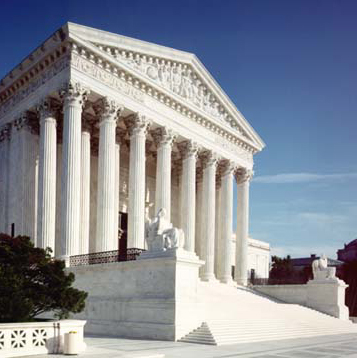
The U.S. Supreme Court on Monday took a Kentucky nursing home’s side in a closely-watched case involving power of attorney and arbitration.
Kindred Nursing Ctrs. LP v. Clark consolidated wrongful death complaints against a Kindred-operated facility, in which representatives with power of attorney for residents signed arbitration agreements. In 2012 Kentucky’s highest court ruled that the agreements were not binding since the people with power of attorney were not specifically granted permission to sign such documents.
The case drummed up support from long-term care provider groups, and was watched closely by legal experts for its potential impact on the skilled nursing sector, and arbitration in general.
In a 7-1 opinion published Monday, Supreme Court Justice Elena Kagan said the Kentucky court failed to put the nursing home arbitration agreements “on equal footing with all other contracts,” as required by the Federal Arbitration Act. Requiring the residents’ representatives to have explicit authority to sign the agreements “did exactly what this Court has barred: adopt a legal rule hinging on the primary characteristic of an arbitration agreement,” Kagan wrote.
“If the respondents were right, States could just as easily declare everyone incompetent to sign arbitration agreements,” the opinion reads. “The FAA would then mean nothing at all — its provisions rendered helpless to prevent even the most blatant discrimination against arbitration.”
The Supreme Court’s decision reverses the Kentucky court’s ruling for one of the wrongful death cases and requires enforcement of the arbitration agreement. A second complaint included in the consolidated case was remanded to state court for further consideration.
A dissenting opinion was filed by Justice Clarence Thomas, who argued that the FAA does not apply to state court proceedings. Newly installed Justice Neil Gorsuch did not take part in the decision since he was confirmed after the court heard arguments in the case.
Richard Silberberg, a partner with Dorsey & Whitney, said the High Court’s decision “reaffirms” a long line of Supreme Court opinions that say the FAA must be applied when the dispute involves interstate commerce.
“The United States Supreme Court has deemed healthcare to be a form of economic activity involving interstate commerce, and for that reason, courts across the country have repeatedly recognized that nursing home admission contracts are subject to the Federal Arbitration Act,” Silberberg said.
He noted that the ruling is also a sign that the court “will continue to favor the enforcement of arbitration agreements where interstate commerce is involved.”




